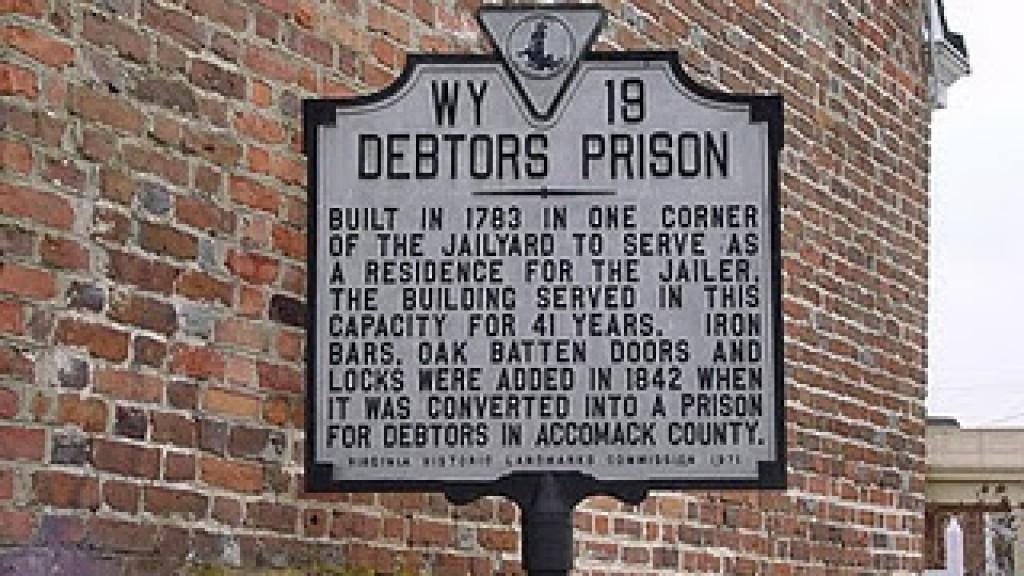This day in history: Kentucky abolished debtors prisons on this day in 1821.
A debtors' prison is a prison for people who are unable to pay debt. Through the mid-1800s, debtors' prisons (usually similar in form to locked workhouses) were a common way to deal with unpaid debt in Western Europe. Destitute persons who were unable to pay a court-ordered judgment would be incarcerated in these prisons until they had worked off their debt via labor or secured outside funds to pay the balance. The product of their labor went towards both the costs of their incarceration and their accrued debt. Increasing access and lenience throughout the history of bankruptcy law have made prison terms for unaggravated indigence obsolete over most of the world.
"Systems of debt bondage have existed for thousands of years. It was a common practice throughout Ancient Greece and the Roman Empire. A person who owed a debt could be compelled into serving their creditor for many years. These sorts of practices spun-off into debtors’ prisons in the Middle Ages, though debt bondage continued to exist and is still practiced in many parts of the world...ou’ve probably heard someone refer to jail as 'the clink.' What you may not have realized is that it’s the name of a real prison in England. The Clink was built in 1144 and was in operation for centuries. That means it housed all manner of prisoners over the years, including many debtors. Even the famous could end up in debtors’ prison. William Hughton, playwright and Shakespearean contemporary, found himself in The Clink for failing to pay back a loan from London entrepreneur Philip Henslowe." Source
Debtors Prisons in the past could be quite harsh: "The prisons were full of rats, lice and fleas. The prisoners were denied basic necessities of life such as food, water and clothing. It is said that these places were dirty and filthy that around 25% of the inmates died due to these horrible living conditions. The debtors were imprisoned and tortured at the pleasure of the creditors. When other countries of Europe had legislation limiting the debt imprisonment term to 1 year, England did not have such a law. When in 1842, the fleet prison was closed; it was found that debtors were there for more than 30 years." Source
Since the late 20th century, the term debtors' prison has also sometimes been applied by critics to criminal justice systems in which a court can sentence someone to prison over willfully unpaid criminal fees, usually following the order of a judge. For example, in some jurisdictions within the United States, people can be held in contempt of court and jailed after willful non-payment of child support, garnishments, confiscations, fines, or back taxes. Additionally, though properly served civil duties over private debts in nations such as the United States will merely result in a default judgment being rendered in absentia if the defendant willfully declines to appear by law, a substantial number of indigent debtors are legally incarcerated for the crime of failing to appear at civil debt proceedings as ordered by a judge. In this case, the crime is not indigence, but disobeying the judge's order to appear before the court. Critics argue that the "willful" terminology is subject to individual mens rea (intention) determination by a judge, rather than statute, and that since this presents the potential for judges to incarcerate legitimately indigent individuals, it amounts to a de facto "debtors' prison" system.



No comments:
Post a Comment